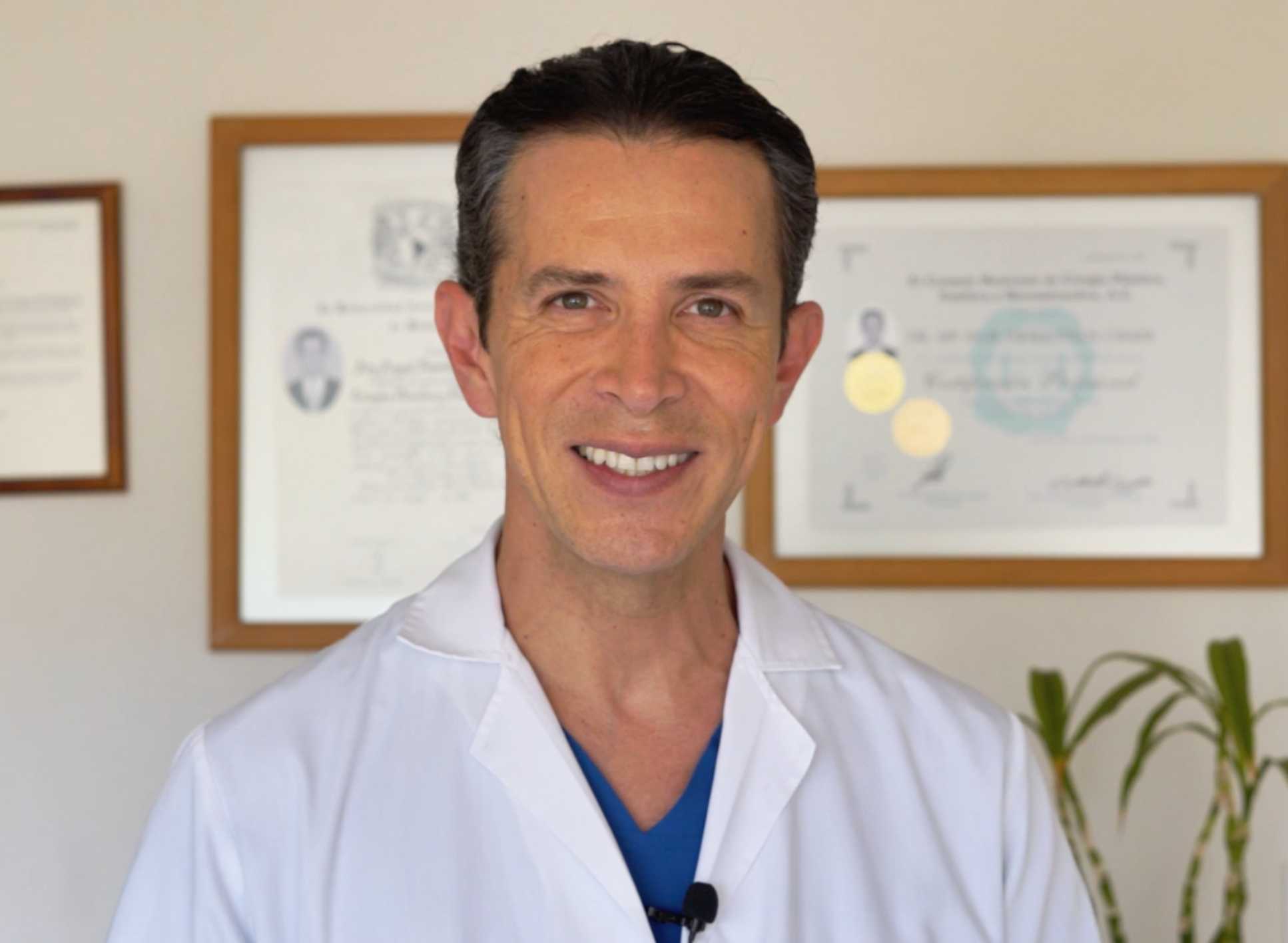Global Autism Care: Top Countries for Treatment

Navigating the landscape of autism treatment can be complex, especially when considering international options. Many families seek out countries that offer cutting-edge therapies, experienced specialists, and supportive environments for individuals on the autism spectrum (ASD). While there's no single "best" country for everyone, several nations stand out for their comprehensive approaches, innovative treatments like stem cell therapy, and commitment to improving the lives of those with autism. This guide will explore some of the top contenders, including Mexico, Colombia, Thailand, Germany, India, and China, detailing what each offers in terms of autism care.
Which country is best for autism treatment?
"The 'best' country for autism treatment depends on individual needs, desired therapies (e.g., traditional behavioral therapies, stem cell therapy), budget, and cultural preferences. However, countries like the United States, Canada, the United Kingdom, Germany, and Australia are often cited for their advanced healthcare systems and comprehensive autism care programs, while others like Mexico, India, and Thailand are emerging as popular destinations for innovative treatments like stem cell therapy due to their affordability and accessibility."
When considering which country might be best for autism treatment, it's crucial to understand that "best" is subjective. Some families prioritize access to Applied Behavior Analysis (ABA) therapy and other evidence-based interventions, while others are exploring newer, more experimental treatments such as stem cell therapy. Factors like cost, travel logistics, language barriers, and cultural considerations also play a significant role in this deeply personal decision. It's recommended to consult with medical professionals and consider a range of options before making a choice.
What makes a country good for autism treatment?
"A country is considered good for autism treatment if it offers a wide range of evidence-based therapies (e.g., ABA therapy, speech therapy, occupational therapy), has experienced specialists, robust diagnostic services, supportive educational systems, ongoing research, and patient-centered care, often with a focus on early intervention."
Beyond specific therapies, a strong support system within a country's healthcare and educational infrastructure is vital. This includes:
- Comprehensive Diagnostic Services: Accurate and early diagnosis is the cornerstone of effective autism treatment. Countries with well-established diagnostic protocols can help families begin intervention sooner.
- Qualified Professionals: Access to highly trained autism specialists, including developmental pediatricians, psychologists, behavioral therapists, speech-language pathologists, and occupational therapists, is crucial.
- Integrated Care: The ability to access various therapies and support services in a coordinated manner ensures a holistic approach to autism care.
- Research and Innovation: Countries investing in autism research often offer access to the latest advancements and experimental treatments, which can be appealing to some families.
- Family Support: Resources for parents and caregivers, such as support groups, educational workshops, and respite care, contribute significantly to the overall well-being of the family unit.
Is Mexico a good country for autism treatment?
"Yes, Mexico has emerged as a promising destination for autism treatment, particularly for those seeking stem cell therapy due to its more accessible regulations and often lower costs compared to countries like the United States."
Mexico has gained recognition for its innovative approaches to autism treatment, especially in the field of regenerative medicine. Many clinics in Mexico offer stem cell therapy for autism, with patients reporting varying degrees of improvement in symptoms. The proximity to the U.S. also makes it a convenient option for North American families looking for alternative treatments. However, it's essential to thoroughly research specific clinics and ensure they adhere to high safety and ethical standards. While conventional therapies like ABA are available, the primary draw for many is the accessibility of advanced cellular treatments.
Is Colombia a good country for autism treatment?
"Colombia offers a developing landscape for autism treatment, with some clinics and specialists providing various therapies. While not as widely recognized as some other nations for specialized autism care, it is a viable option for those seeking quality care at potentially lower costs than in Western countries."
Colombia's healthcare system is evolving, and there are growing efforts to provide better services for individuals with autism. Families might find a range of traditional therapies available, including speech therapy and occupational therapy. As with any international medical travel, due diligence is key to finding reputable clinics and experienced professionals. Researching patient testimonials and the accreditations of facilities can help ensure a positive experience.
Is Thailand a good country for autism treatment?
"Yes, Thailand is becoming a notable destination for autism treatment, offering a combination of modern medical facilities, holistic approaches, and competitive pricing, including options for stem cell therapy."
Thailand's medical tourism industry is well-developed, and this extends to autism care. Many centers in Thailand focus on comprehensive approaches, blending conventional therapies with alternative and complementary treatments. The country provides a nurturing environment with a strong emphasis on developmental support. Families looking for a more affordable yet high-quality option for autism treatment, including those interested in stem cell therapy, often consider Thailand. It's advisable to check the specialization of clinics, as some might focus more broadly on regenerative medicine rather than specific autism programs.
Is Germany a good country for autism treatment?
"Yes, Germany is considered a leading country for autism treatment in Europe, known for its well-organized healthcare system, high-quality services, and focus on evidence-based practices, including behavioral therapies and, in some cases, advanced regenerative medicine."
Germany boasts a robust healthcare system with a strong emphasis on research and development. German clinics offer a variety of autism treatments, including ABA therapy, speech therapy, and sensory integration therapy. The German Society for Autism actively supports individuals and families, and the country is home to several top-tier autism research institutions. While costs might be higher than in some developing nations, the standard of care and expertise is generally very high. Germany also explores advanced treatments like stem cell therapy, though usually for older patients (14+ years).
Is India a good country for autism treatment?
"Yes, India is rapidly advancing in autism treatment, offering a blend of traditional therapies and innovative regenerative medicine options like stem cell therapy at a more affordable cost, making it an attractive destination for many families."
India's healthcare infrastructure is growing, and there's an increasing focus on specialized autism care. Many clinics in India offer comprehensive programs that include ABA therapy, occupational therapy, and speech therapy. Furthermore, India is at the forefront of regenerative medicine research and offers stem cell therapy for autism, with some institutions developing novel therapies using human neural stem cells. The cost-effectiveness of treatments in India makes it a compelling choice for families seeking advanced care without the high price tag often associated with Western countries.
Is China a good country for autism treatment?
"China has a rapidly developing autism treatment landscape, with a growing number of specialized centers and an increasing focus on both traditional and modern therapies, though information regarding specific outcomes and international patient services may vary."
China has seen a significant increase in awareness and resources dedicated to autism. While the prevalence of diagnosis might be reported as lower than some Western countries, there are many institutions and private clinics offering autism treatment. These often include a mix of behavioral interventions, educational support, and some exploration into newer medical approaches. For international patients, it's crucial to research clinics thoroughly and understand the available language support and treatment protocols.
What types of autism treatment are available internationally?
"Internationally, autism treatment options commonly include Applied Behavior Analysis (ABA) therapy, speech therapy, occupational therapy, physical therapy, social skills training, and increasingly, stem cell therapy and other forms of regenerative medicine."
The range of autism treatment options is diverse, reflecting the complex nature of the condition and the varying needs of individuals. Key treatments include:
- Applied Behavior Analysis (ABA): This is one of the most widely recognized and evidence-based therapies, focusing on teaching new skills and reducing challenging behaviors.
- Speech and Language Therapy: Essential for improving communication skills, from verbal speech to alternative communication methods.
- Occupational Therapy (OT): Addresses sensory sensitivities, fine motor skills, and daily living activities to enhance independence.
- Physical Therapy (PT): Helps with gross motor skills, coordination, and balance.
- Social Skills Training: Programs designed to teach and practice social interactions and understanding social cues.
- Medication: While not a cure for autism, medications may be prescribed to manage co-occurring conditions like anxiety, ADHD, or aggression.
- Dietary and Nutritional Interventions: Some families explore specific diets or supplements, though evidence supporting their effectiveness for autism itself is often limited.
- Stem Cell Therapy: An experimental but increasingly explored treatment, particularly in countries like Mexico, India, and Thailand, that aims to address potential underlying biological factors associated with autism. It involves the use of mesenchymal stem cells (MSCs) or other stem cells to reduce inflammation and promote neural connectivity.
What are the benefits of seeking autism treatment abroad?
"Seeking autism treatment abroad can offer benefits such as lower costs for certain therapies, access to innovative or experimental treatments not readily available domestically (e.g., specific stem cell therapy protocols), reduced wait times, and exposure to specialized clinics with unique approaches."
The decision to travel abroad for autism treatment is often driven by several factors:
- Cost Savings: Treatments like stem cell therapy or extensive ABA programs can be significantly more affordable in countries like Mexico, India, or Thailand compared to Western nations.
- Access to Novel Treatments: Some countries are more progressive in their adoption of new or experimental therapies, such as various forms of regenerative medicine, which might not yet be approved or widely available elsewhere.
- Reduced Waiting Lists: In some healthcare systems, waiting lists for specialized autism services can be long. Traveling abroad might offer quicker access to care.
- Specialized Expertise: Certain clinics or specialists in other countries may have a unique focus or particular expertise in specific autism challenges or treatments.
- Privacy and Discretion: For some families, seeking treatment in a different country can offer a greater sense of privacy.
What are the challenges of seeking autism treatment abroad?
"Challenges of seeking autism treatment abroad include potential language barriers, differences in medical standards and regulations, travel logistics and stress for the individual with autism, limited post-treatment follow-up, and the need for thorough research to avoid unproven or unsafe therapies."
While there are advantages, potential challenges must be carefully considered:
- Language and Cultural Barriers: Communication can be difficult if medical staff do not speak the patient's language, and cultural differences might impact the treatment approach or daily interactions.
- Varying Standards of Care: Medical regulations and standards can differ significantly between countries. It's crucial to verify the accreditation and reputation of any clinic or hospital.
- Travel Stress: Traveling long distances, especially with an individual with autism, can be stressful and disruptive to routines, potentially impacting their well-being.
- Follow-up Care: Ensuring consistent follow-up care and integration of new skills into the home environment after returning from abroad can be challenging.
- Scams and Unproven Therapies: The international medical tourism landscape can sometimes include clinics offering unproven or even harmful treatments. Diligent research is paramount to ensure safety and efficacy.
How much does autism treatment cost abroad?
"The cost of autism treatment abroad varies widely depending on the country, the type of therapy, the duration of treatment, and the clinic's reputation, ranging from a few thousand dollars for intensive behavioral programs to tens of thousands for stem cell therapy."
For example:
- Stem Cell Therapy: In countries like Mexico or India, a course of stem cell therapy can range from $10,000 to $30,000 or more, whereas in Western countries, if available, it might be significantly higher or still in clinical trial phases.
- ABA Therapy: While the hourly rates for ABA therapists might be lower in some countries, the overall cost of an intensive program can still add up.
- Comprehensive Programs: Packages that include diagnostics, multiple therapies, and accommodation can range from moderate to substantial, depending on the breadth of services.
It's vital to get a detailed breakdown of all costs involved, including treatment fees, medication, diagnostics, accommodation, travel, and any potential hidden charges.
What is the role of stem cell therapy in autism treatment?
"Stem cell therapy in autism treatment is an experimental approach that aims to address potential neurological and inflammatory issues associated with ASD. It typically involves injecting mesenchymal stem cells (MSCs), which are believed to have immunomodulatory and regenerative properties that could reduce inflammation and improve brain function."
While still considered experimental, stem cell therapy has garnered significant attention in the field of autism research. The rationale behind its use is that autism may involve neuroinflammation and immune system dysregulation. Mesenchymal stem cells (MSCs), often derived from umbilical cord blood or tissue, are thought to have the ability to:
- Reduce Inflammation: Modulate the immune system to decrease neuroinflammation.
- Promote Neural Repair: Support the repair of damaged neural pathways and improve connectivity.
- Improve Blood Flow: Enhance circulation in areas of the brain.
Patients who have undergone stem cell therapy for autism have reported improvements in areas such as eye contact, speech, attention span, and reduction in repetitive behaviors. However, it's crucial to approach this treatment with a realistic understanding that results can vary, and it is not a guaranteed cure. Ongoing research is vital to fully understand its long-term efficacy and safety.
Is early intervention crucial for autism treatment abroad?
"Yes, early intervention is widely recognized as crucial for autism treatment, both domestically and abroad, as starting therapies at a young age can significantly improve developmental outcomes, communication skills, and social interaction for individuals with autism spectrum disorder."
The brain of a young child is highly plastic, meaning it is more adaptable and responsive to interventions. Early intervention allows for the development of essential skills during critical developmental periods, potentially mitigating some of the challenges associated with autism. This applies regardless of where the treatment is sought. Countries with a strong emphasis on early diagnosis and accessible early intervention programs are generally better positioned to support individuals with autism.
How can I verify the credibility of an autism treatment clinic abroad?
"To verify the credibility of an autism treatment clinic abroad, you should check for international accreditations (e.g., Joint Commission International - JCI), review patient testimonials and outcomes, inquire about the qualifications and experience of their autism specialists, and seek recommendations from trusted medical professionals or autism advocacy groups."
Due diligence is paramount when considering autism treatment abroad. Here are key steps:
- Accreditation: Look for internationally recognized accreditations, such as Joint Commission International (JCI), which indicates adherence to global healthcare standards.
- Medical Team Credentials: Verify the licenses, qualifications, and experience of the doctors and therapists. Are they specialized in autism?
- Patient Reviews and Testimonials: Seek out independent reviews and testimonials from other families who have utilized the clinic's services.
- Transparent Communication: A reputable clinic will be transparent about their treatment protocols, expected outcomes, costs, and any potential risks.
- Ask for Case Studies: Inquire if they can provide anonymized case studies or data on their success rates for specific autism treatments.
- Consult Your Local Doctor: Discuss your plans with your local pediatrician or autism specialist to get their perspective and advice.
What support systems are available for families seeking autism treatment abroad?
"Support systems for families seeking autism treatment abroad often include medical tourism facilitators, patient advocacy groups, online forums for international autism families, and, in some cases, dedicated support staff at the clinics themselves who assist with travel and logistics."
Many organizations specialize in facilitating medical travel for complex conditions like autism. These services can help with:
- Clinic Selection: Guiding families to reputable clinics based on their specific needs.
- Travel Arrangements: Assisting with flights, accommodation, visas, and local transportation.
- Translation Services: Providing interpreters for consultations and during treatment.
- Logistical Support: Helping navigate the foreign healthcare system and local customs.
- Peer Support: Connecting families with others who have undergone similar experiences.
It's essential to choose a reputable facilitator and to remain actively involved in every step of the decision-making process.
For families exploring autism treatment options globally, PlacidWay offers comprehensive solutions and guidance, connecting you with reputable clinics and specialists worldwide to help you find the best care tailored to your specific needs. Explore PlacidWay to learn more about international healthcare services and make informed decisions for your loved one.


.png)





.jpg)
.png)







Share this listing